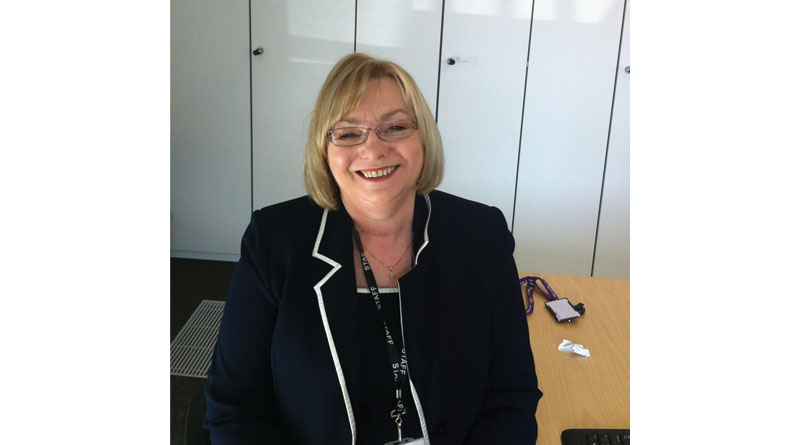As Nights Draw In, Hospitality Can Lead the Way on Women’s Safety

By Gillie O’Rourke, President of Soroptimist International Great Britain and Ireland (https://sigbi.org/)
It’s barely past five o’clock, but the sky is already black. The pavements glisten under streetlights, and the roaring noise from pubs and restaurants spills into the cold air.
Yet for many women and girls, this time of year brings something less visible, a quiet calculation about safety.
Should I call a taxi instead of walking? Do I have to close on my own again? Do I even go out at all?
Although hospitality venues are places where people come together, celebrate and work, they also have a powerful role to play in ensuring women can do so safely and confidently, especially as we enter the busy festive season.
Research from the UK Statistics Authority suggests that 82% of women feel unsafe in public spaces after dark. This risk often becomes more pronounced in the night-time economy, particularly in hospitality settings such as hotels, bars, and restaurants.
A survey by London-based security provider, Mitie, also found that nearly three-quarters of people change their behaviour once the clocks go back, while one in five people feel their employers should do more to keep them safe.
At Soroptimists, we recognise that while winter affects all, it poses unique risks to women’s safety.
Hospitality venues, therefore, have a key role in recognising and mitigating seasonal disparity for female customers and employees.
When the Nights Get Longer, the Risks Grow Too
From bustling bars and late-night restaurants to hotels with around-the-clock operations, venues in the night-time economy are seen as high-risk spaces for women.
Factors such as alcohol, crowds, and dim lighting can create conditions where harassment, spiking and other forms of violence against women and girls are more likely to happen.
These risks shape behaviour in both subtle and significant ways, whether its cancelling drinks with friends because you can’t get a lift home, paying for a taxi (even for a short journey) or swapping shifts to avoid walking home in the dark.
These quiet adjustments often go unseen, yet they add up to a larger social cost. When women feel unsafe, they engage less with nightlife activity meaning hospitality businesses lose out too.
Hospitality venues have a chance to change the narrative and take proactive steps to keep women safe and be seen as a ‘safe space’. It’s crucial you ensure that darker nights don’t mean diminished freedom or anxiety for your female customers and staff.
Turning Awareness into Action
Soroptimists are urging the hospitality industry to implement Gender Impact Assessments (GIAs), a simple checklist that helps identify how darker nights and seasonal changes affect both staff and customers. GIA’s essentially ask “is this fair for everyone – men and women alike?”
In winter, a GIA can reveal gaps that might otherwise go unnoticed from lone-closing procedures to poorly lit exits or lack of accessible transport options.
Start by surveying staff and guests to understand their experiences and concerns, then use that insight to create an action plan with practical steps, clear procedures and collaborative partnerships that create a lasting environment of safety and care.
Top Tips for Hospitality Venues
Here’s a few ways a GIA can help ensure a balanced overview to support women:
• Surveillance and security: Review lighting, CCTV coverage, and visibility on surrounding streets, car parks and exits after dark. Check whether female staff and customers must walk through poorly lit or isolated areas and try to mitigate this.
• Staff rotas and closing procedures: Review shift patterns, reduce lone working and ensure staff can access reliable transport home.
• Clear harassment reporting protocols: Train staff to respond confidently to harassment and know who to contact immediately. Consider panic buttons or alarm systems for anyone working alone late at night.
• Local taxi company partnership: Partner with a trusted local taxi company to ensure safe, reliable transport for staff and customers.
• Campaigning for Purple Flag status: Advocate for your area to achieve Purple Flag status by contacting your local authority – a national accreditation from the Association of Town and City Management recognising excellence in managing the night-time economy.
By reviewing this information, you can ensure, as an employer, you are inclusive and are prioritising women’s safety fully.
Leading the Way
Although GIAs may not be standard practice yet across the industry, they offer a practical solution which will lead the way in building fair, inclusive and supportive venues that retain and protect staff and customers.
As the nights grow longer and the festive season begins, hospitality venues have a unique opportunity to make winter safer for women and girls. By addressing seasonal challenges proactively, they not only protect staff and guests but also foster a lasting culture of safety.
If you’d like to learn more about implementing a GIA into your venue, contact your local Soroptimists’ club for guidance and support: https://sigbi.org/club-finder/
